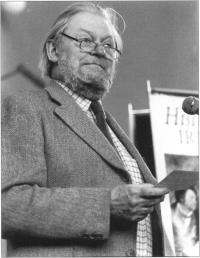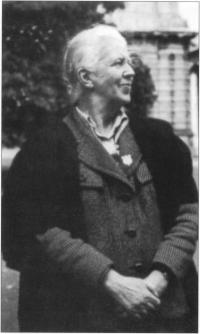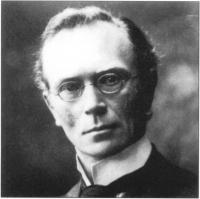Interview with Professor James Lydon (3:1)
Published in Anglo-Norman Ireland, Early Modern History (1500–1700), Features, Gaelic Ireland, Issue 1 (Spring 1995), Medieval History (pre-1500), Volume 3‘A real Irish historian’ (3:1)
 Seán Duffy talks to James Lydon who last year retired as Lecky Professor of Modern History in Trinity College, Dublin.
Seán Duffy talks to James Lydon who last year retired as Lecky Professor of Modern History in Trinity College, Dublin.
SD: Tell me about your family background and early years.
JL: I was born in Galway. My mother was from an Irish-speaking family not far from the city. My father was a baker and his family originated in Connemara. I went to school in Galway, took my degree in University College Galway and went to London to do my doctorate.
SD: How formative was your background in shaping your outlook?
Very important. Galway in those days was very much more rural than it would be today and I spent a great deal of my time in the country as a young boy with the Irish-speaking side of my family. It gave me an interest in Irish as such, in the countryside and in what would be quaintly called ‘folk ways’. I think it is very important that anyone working on Irish history up to the modern period should have some knowledge of the Irish language which will keep them in touch with a side of Ireland you never encounter if you are simply examining it through English sources or in particular through government records which are all in English.
SD: In UCG you were involved in acting and drama. Do you think it had an effect on your teaching?
JL: Yes. If you want to be a good lecturer you have to be an actor, otherwise you do not come across to the audience and cannot hold their interest. Of course teaching involves an awful lot more. One of the essential ingredients is to be enthusiastic about your subject. If you can communicate some part of that enthusiasm to your students then you have really succeeded.
SD: You were taught by M.D. O’Sullivan. How big an influence was she on you?
JL: She was a very big influence. I know she is not regarded kindly by historians today, I think wrongly so. Her Old Galway is a superb book. Another one that is totally neglected is her book on the Italian merchants and Ireland. But she had a very strong influence on all of her students, and she produced a quite extraordinary number of good historians. One thing she was very hot on altogether was the expression of history, the literary style. But she was a very strong and important influence on my life, and on others.
SD: How did you end up doing your doctorate in London?
 JL: While doing my MA in Galway I had to travel to London to work in the libraries there. I worked as a railway porter to keep myself going. UCG had a subscription to the Institute of Historical Research so I was able to use its facilities. There I met the great Welsh historian J.G. Edwards who apparently had a soft spot for Irishmen so we got on very well together. On my return to Galway the following year I applied for a research fellowship at the Institute and to my astonishment I was successful.
JL: While doing my MA in Galway I had to travel to London to work in the libraries there. I worked as a railway porter to keep myself going. UCG had a subscription to the Institute of Historical Research so I was able to use its facilities. There I met the great Welsh historian J.G. Edwards who apparently had a soft spot for Irishmen so we got on very well together. On my return to Galway the following year I applied for a research fellowship at the Institute and to my astonishment I was successful.
SD: Is it not ironic that you come from a Gaelic background in the west of Ireland and yet you ended up being the archetypal Anglo-Irish historian?
JL: I suppose it is but it was completing the circle in a way. I could not have done the kind of work I have had I not had an interest in Gaelic things, or Irish things generally, or if I had not been formally trained in the methodology of English administrative history.
SD: You came to Trinity in the early sixties. How did you find it as a Catholic?
JL: There were a number of Catholics on the staff and a fair number of students, but they were totally neglected. Some of us got involved in the Laurentian Society and we began to organise it as a Catholic pressure group. We tried to get priests to come in to talk to the students. Secular clergy never came but we got Dominicans, Carmelites and Franciscans, always in civvies! It was a very odd sort of set-up.
SD: Were you involved in moves to get rid of the hierarchy’s ban on Catholics attending Trinity?

Eoin MacNeill
JL: Yes. In 1961 Archbishop John Charles McQuaid reiterated the ban in his Lenten message, which he had not done in detail for a long time. This Lenten pastoral was reprinted in 1967. We were horrified and in reply we organised a petition against it signed by all the Catholic members of staff. One of the results was the famous Late Late Show, where the second half was given over to the Trinity ban with David Thornley and myself on the panel arguing against. I am convinced to this day that one of the reasons the ban went was the public opinion roused by that programme.
SD: The leading light in medieval history in Trinity in those days was Professor Otway-Ruthven. Somebody recently described her as ‘the most terrifying women I have ever met’. Was that your view?
JL: Yes, in the sense that if you met her for the first time not knowing anything about her, you would not find her very endearing. She gave the impression of being very cold and aloof. She was a very tall woman and spoke in a terrifying deep voice. But once you got to know her, there was a very different person altogether. As an historian, working through record evidence, she was just unbeatable. Her contribution to Irish history at that level will never be surpassed.
SD: The other great doyen of Irish history in Trinity, then, was Theo Moody. Do you subscribe to the general view of his pivotal role in Irish historiography?
JL: Not entirely. You have to give him credit where credit is due. He was an excellent organiser. He and Dudley Edwards took history out of the realms of antiquarianism and gave it the status of a proper discipline. But they seemed to think there was no place in history for opinion whereas I believe that history is always a matter of opinion. While you must be as scientific as you can in using sources, at the same time you must always be engaged with your material. As Eoin MacNéill, a historian currently out of favour but whom I greatly admire, stated in the preface to Phases of Irish History, ‘neither apathy nor antipathy can ever bring out the truth in history’. On that basis I fault Moody. I think he and those like him were always trying to say the last word. I am trying to say the first word and hope that those following will have other words to add. That is why history is by its very nature revisionist.
SD: You mention Eoin MacNéill. Are there any other historians currently out of favour whom you particularly admire?
JL: Curtis is the obvious one. He had a very personalised approach to history, one of the qualities I tried to find in myself. He had a knowledge of Irish. An extraordinary fact, that this Englishman, who had no connections with Ireland at all, took the trouble to learn Irish, and to really steep himself in it. He produced an anthology of Irish poetry back in the 1920s. You can see the influence of that knowledge in his History of Medieval Ireland. The linguists may quibble at his translations, just as historians point out his weaknesses on the administrative side, but it was the combination of the two in a new, interesting and invigorating fashion that made him so great. And I still believe that Curtis should be read today.
SD: As to your own contribution to Irish historiography, is there any one item that you would single out?
JL: I would single out The Lordship of Ireland in the Middle Ages(1972). I had given a lecture to the Military History Society of Ireland on Richard II’s expeditions to Ireland. It went down terrifically well and Moody asked me to submit it to Irish Historical Studies. When I gave it to him he said, ‘Oh I can’t print it like this. We need a scientific approach, proper footnotes, references and all that’. I refused to comply since I had already included with the text a detailed bibliographical note where I listed every single Public Record Office account that I had used, most of which had never been looked at before. I felt there was no point in itemising footnotes because the material was there in the thing. Instead I submitted it to the Royal Society for Antiquaries of Ireland and it was published straight away. It is now a standard little piece on the subject. I wrote another article for Irish Historical Studies, on Edward II and the revenues of Ireland. I put in as many footnotes as I could, half way up the page if necessary! After that I decided to write a book without a single footnote and The Lordship of Ireland was the result. A second edition was supposed to come out soon after with the requisite footnotes but neither the publishers nor I got around to it. But before I die it is something I will do, which will please Moody in heaven. But The Lordship says everything I wanted to say and my attitude as depicted in it would be pretty much the same even now.
SD: Are you working on any major project at the moment?
JL: My big project at the moment is to replace Curtis’ A History of Ireland for Routledge. They wanted a medievalist, which amazed me, because they liked the perspective of Curtis and thought I would give them something similar and I will. I have now reached the Act of Union (1800) and hope to finish within the next year. Then I will go back and do the new version of The Lordship of Ireland.
SD: Would you describe yourself as a nationalist historian?
JL: I would, in the best sense of the word. I am not embarrassed by being a nationalist; I believe in the Irish nation. While writing the new version of A History of Ireland I have become more conscious of the fact that there was an Irish nation in the making from the medieval period onwards. And what is more, this Irish nation consisted of Gaelic and Anglo-Irish elements and it was recognised at the time. I deliberately eschewed social and economic history because I did not want to make the book too long, so I concentrated on the political. What has emerged, almost unconsciously, is a history of the Irish nation. And I am going to call it that. So I am a nationalist in that sense. I was accused not so very long ago of being a ‘green’ historian and my accuser thought it strange that I was working in Trinity. It reminds me of a survey of student opinion conducted three or four years after I first came here on the teaching of history. I was very pleased because I came out of it rather well. But the thing that pleased me most and what stuck in my mind was the comment, ‘he is that rare thing in Trinity College — a real Irish historian’.
SD: Who are your heroes in Irish history?
JL: Brian Boru, the Red Earl, the so-called rebellious first Earl of Desmond, the third Earl of Desmond, the White Earl of Ormond, some of the O’Neills, Henry O’Neill in particular, and so on. I could go through them. But I always had an aversion to the eighteenth century, probably because I studied it in great detail for the Leaving Certificate, day-by-day, hour-by-hour. So I was dreading doing it for the History of Ireland. Now I am in love with it. I had a particular interest in the declaration of what we may call the parliamentary independence of medieval Ireland. And this was the same issue taken up by the late seventeenth and early eighteenth-century ‘patriots’ like Molyneux. The one I really fell in love with was Swift. When I went to other end of the century, I became enamoured with the Presbyterians. I always admired Wolfe Tone, but the more I read about him, the less he impressed me, whereas people like Drennan, impressed me greatly. We all learnt the Wake of William Orr at school. I never appreciated its significance, but now I do. A contemporary, travelling from Cashel to Limerick in 1797, the year of Orr’s death, reported that every village he passed through was mourning him. They knew about William Orr. And these were all Catholics! I wish to goodness the Irish government would issue a stamp in ‘97 to commemorate that because it was a wonderful thing. Of all the rebels, I now admire—this is my latest discovery and I cannot believe it—Robert Emmet, who I always thought of as a bit of a nincompoop and an eejit. But I have now changed my mind completely. His plan for insurrection in 1803 was better than the ‘98 plan and had he been given the right circumstances he would have succeeded. That was the view of the English government. I was never a great admirer of O’Connell, but then I have not reached him yet in my history. I have always admired Thomas Davis greatly, the Land Leaguers, Michael Collins marginally, but not Eamon de Valera. So I have a lot of heroes.
SD: Most of your heroes are Anglo-Irish. Is that significant?
JL: It is important to remember that the republican tradition came through these people. It was always based in Trinity and what they learnt at Trinity. I am not saying the majority of people in Trinity were like my heroes. They were not, but Trinity provided the liberal environment in which their ideas developed.
SD: What comes across is a great affection for Trinity. If you had spent your career in another institution would you have developed a similar loyalty?
JL: I might have had I stayed in UCG. I was born in Galway, went to college and made my first friends there. But I cannot speak highly enough of Trinity. It is a wonderful university and we should be proud of it. I would not be the historian I am were it not for Trinity.
















